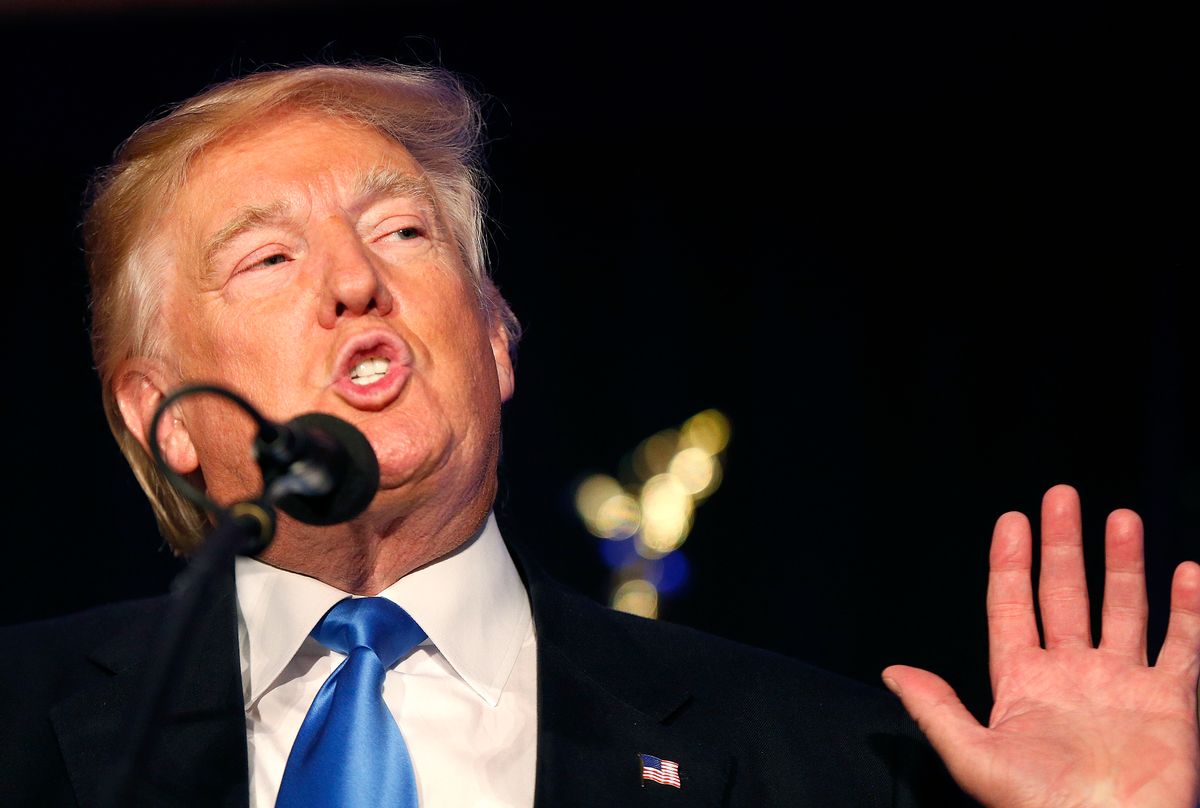This originally appeared on Robert Reich's blog.
I recently got a call from a political analyst in Washington. “Trump is dropping like a stone,” he said, convincingly. “After Election Day, he’s history.”
I think Trump will lose the election, but I doubt he’ll be “history.”
Defeated presidential candidates typically disappear from public view. Think Mitt Romney or Michael Dukakis.
But Donald Trump won’t disappear. Trump needs attention the way normal people need food.
For starters, he’ll dispute the election results. He’s already warned followers “we better be careful because that election is going to be rigged and I hope the Republicans are watching closely, or it’s going to be taken away from us.“
His first campaign ad, released last week, features an image of a polling site with the word “rigged” flashing onscreen less than two seconds after the spot begins.
Trump won’t have any legal grounds to stand on — this election won’t be a nail-biter like 2000 — but his goal won’t be to win in court. It will be to sow enough doubt about the legitimacy of Hillary Clinton’s election that he can continue to feed paranoia on the right.
A recent Pew Research Center survey shows even now, 51 percent of Trump’s supporters have little or no confidence in the accuracy of the vote count nationally. That’s a big change from supporters of the defeated Republican nominees in 2004 and 2008.
Reportedly, Trump is also considering launching his own media network. He’s already hired two of the nation’s most infamous right-wing fight promoters — Roger Ailes, the founder and former CEO of Fox News, and Stephen Bannon, the pugilistic former head of Breitbart News — who’d take to such an enterprise like alligators to mud.
According to one source, Trump’s rationale is that, “win or lose, we are onto something here. We’ve triggered a base of the population that hasn’t had a voice in a long time.”
Triggered indeed. Many of them angry and bigoted before his campaign, Trump supporters have only become more so under his tutelage.
The poison has even seeped down to America’s children. A Southern Poverty Law Center survey of 2,000 school teachers recently found Trump’s campaign producing an “alarming level of fear and anxiety among children of color” and inflaming racial and ethnic tensions in the classroom. “Teachers have noted an increase in bullying, harassment and intimidation of students whose races, religions or nationalities have been the verbal targets … on the campaign trail.”
Most likely to remain after Trump are the economic anxieties Trump exploited. Globalization and technological displacement will continue to rip away the underpinnings of the bottom half of the population, creating fodder for another demagogue.
The real problem isn’t globalization or technological change per se. It’s that America’s moneyed interests won’t finance policies necessary to reverse their consequences — such as a first-class education for all the nation’s young, wage subsidies that bring all workers up to a livable income, a massive “green” jobs program, and a universal basic income.
Hillary Clinton hasn’t proposed anything remotely on this scale, and House Republicans (who will almost certainly remain in power) wouldn’t go along anyway.
After Trump, our politics seems likely remain as polarized as before — but divided less between traditional right and left than between establishment and anti-establishment.
Trump will leave the GOP sharply split between its corporate donor class and its working class. Clinton will preside over a party divided only somewhat less dramatically between its own donor class and an increasingly vocal progressive base.
Which raises an intriguing, if unlikely, scenario. What if Trump’s authoritarian populists join with progressive populists to form an anti-establishment third party dedicated to getting big money out of American politics?
The combination could prove an invincible force for wresting back the economy and democracy from the moneyed interests.
It’s not impossible. This has been the strangest election year in modern history, partly because such a large swath of Americans — Republicans, Democrats and Independents — have concluded the system is rigged in favor of the privileged and powerful.
Trumpism will continue after Trump loses. The open question is whether anything good can be salvaged from its wreckage.



Shares